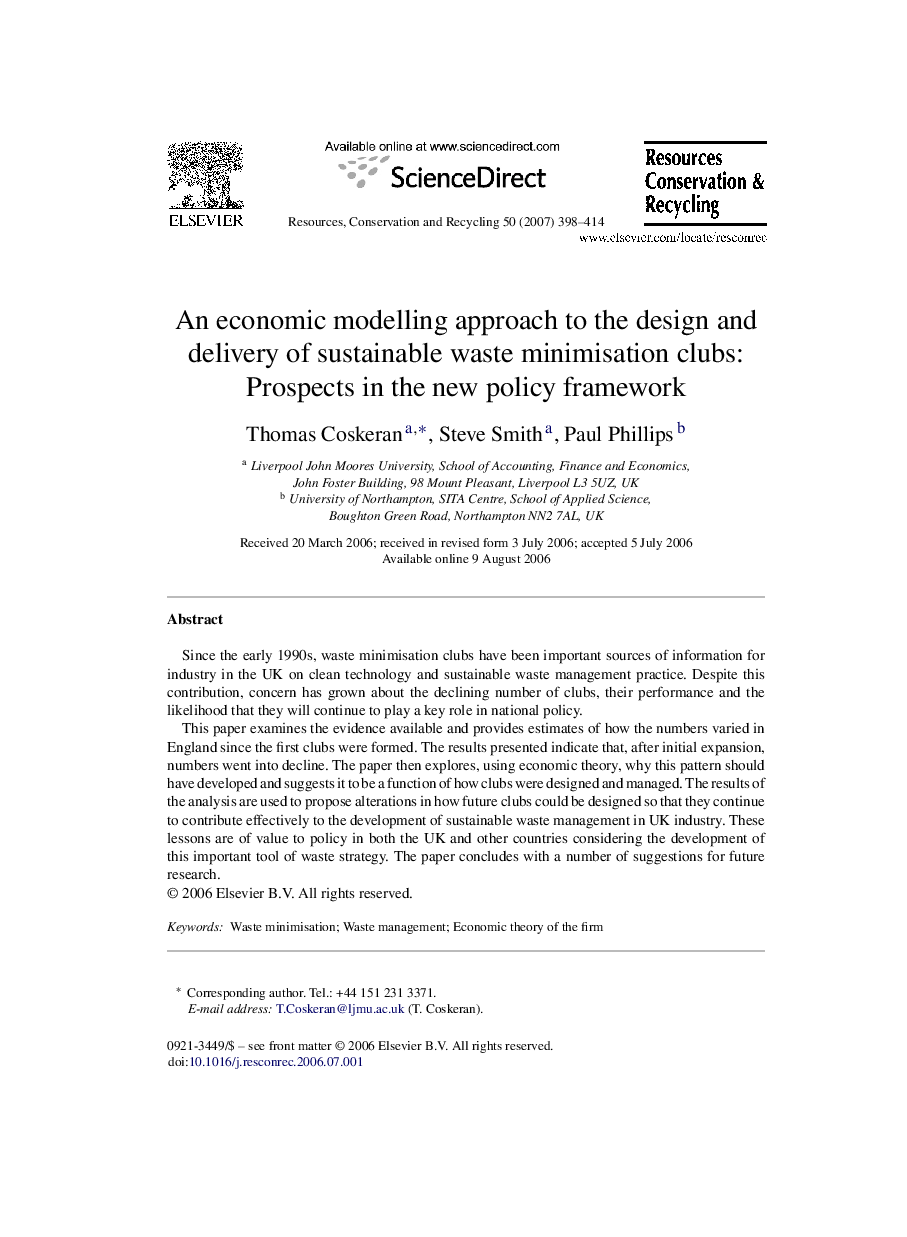| Article ID | Journal | Published Year | Pages | File Type |
|---|---|---|---|---|
| 1064076 | Resources, Conservation and Recycling | 2007 | 17 Pages |
Since the early 1990s, waste minimisation clubs have been important sources of information for industry in the UK on clean technology and sustainable waste management practice. Despite this contribution, concern has grown about the declining number of clubs, their performance and the likelihood that they will continue to play a key role in national policy.This paper examines the evidence available and provides estimates of how the numbers varied in England since the first clubs were formed. The results presented indicate that, after initial expansion, numbers went into decline. The paper then explores, using economic theory, why this pattern should have developed and suggests it to be a function of how clubs were designed and managed. The results of the analysis are used to propose alterations in how future clubs could be designed so that they continue to contribute effectively to the development of sustainable waste management in UK industry. These lessons are of value to policy in both the UK and other countries considering the development of this important tool of waste strategy. The paper concludes with a number of suggestions for future research.
